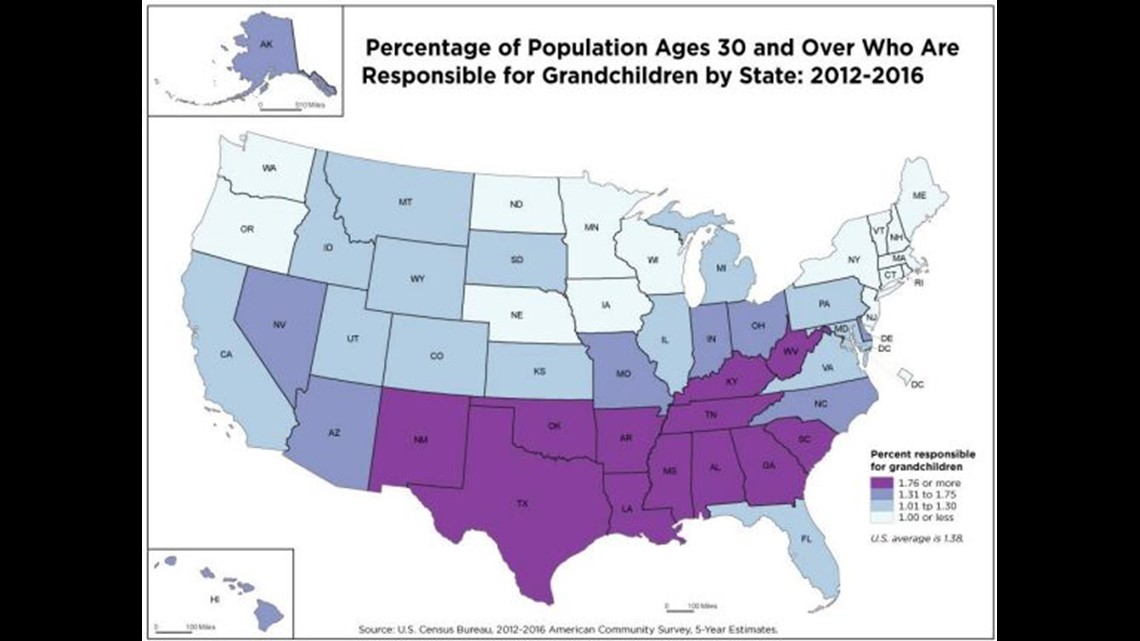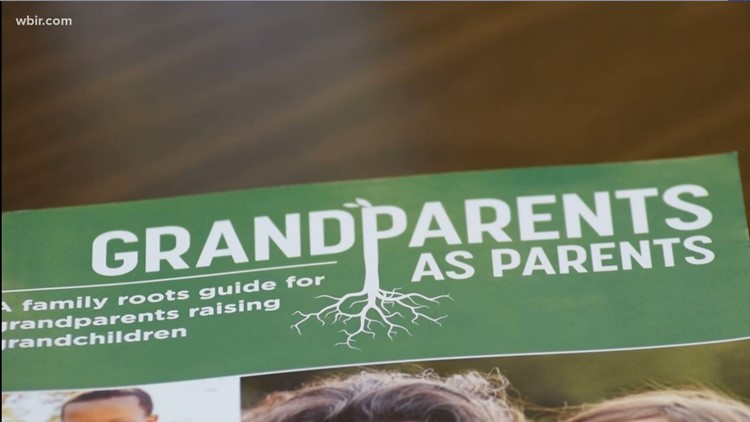KNOXVILLE, Tenn. — According to AARP, over 70,000 grandparents in Tennessee are raising their grandchildren. Local leaders place most of the blame on the opioid epidemic.
"I get up at 5 am and then I get my great grandson up. Then, I get him his breakfast. He has asthma, so he has to have his breathing treatment," Doris McGaha said.
Dorris McGaha is 75 years old and has custody of her 6-year-old great grandson. She's raising her great grandson because his parents aren't fit to.
"After I take him to school, I have a few minutes to stop at McDonalds! That's my treat," McGaha said.
Doris McGaha came out of retirement to glue her family back together after the court took her great grandson from his parents.
"He calls me Nanna and he knows mom and dad aren't in the picture," McGaha said.
Doris' family is facing a common issue in our country. Many grandparents are forced to raise children because the kid's parents are battling addiction.
"It is growing every year. There are five people that I know of in our CAC office that are raising grand and great grandchildren. That's a lot for under just one roof," Susan Long, the director at the Knoxville/Knox County Community Action Committee said.
This map shows the states where more than 1.76% of grandparents who are raising their grandchildren in dark purple. You can see Tennessee and Kentucky are included in that. Kentucky has the 5th highest percentage of any state.


The Knoxville/Knox County Community Action Committee has noticed the problem and they've stepped up to help with their program Grandparents as Parents.
"They don't know what to do and how to do it properly," McGaha said.
It provides several resources for people trying to re-learn how to raise a child.
"You have to get your rhythm back is what it is," McGaha said.
Doris said she's done trying to get the boys parents back in the picture.
"It's very frustrating. No matter what you do to help them, they will fall back," McGaha said.
While most people her age are retired, Doris is working full time, something she didn't even do when she raised her own kids 50 years ago.
"At the end of the day, it's well worth it," she said.
Knox County Juvenile Court Judge, Tim Irwin said cases like this are very common. He sees it in his court room two to three times a week. He attributes the issue to the opioid epidemic.



